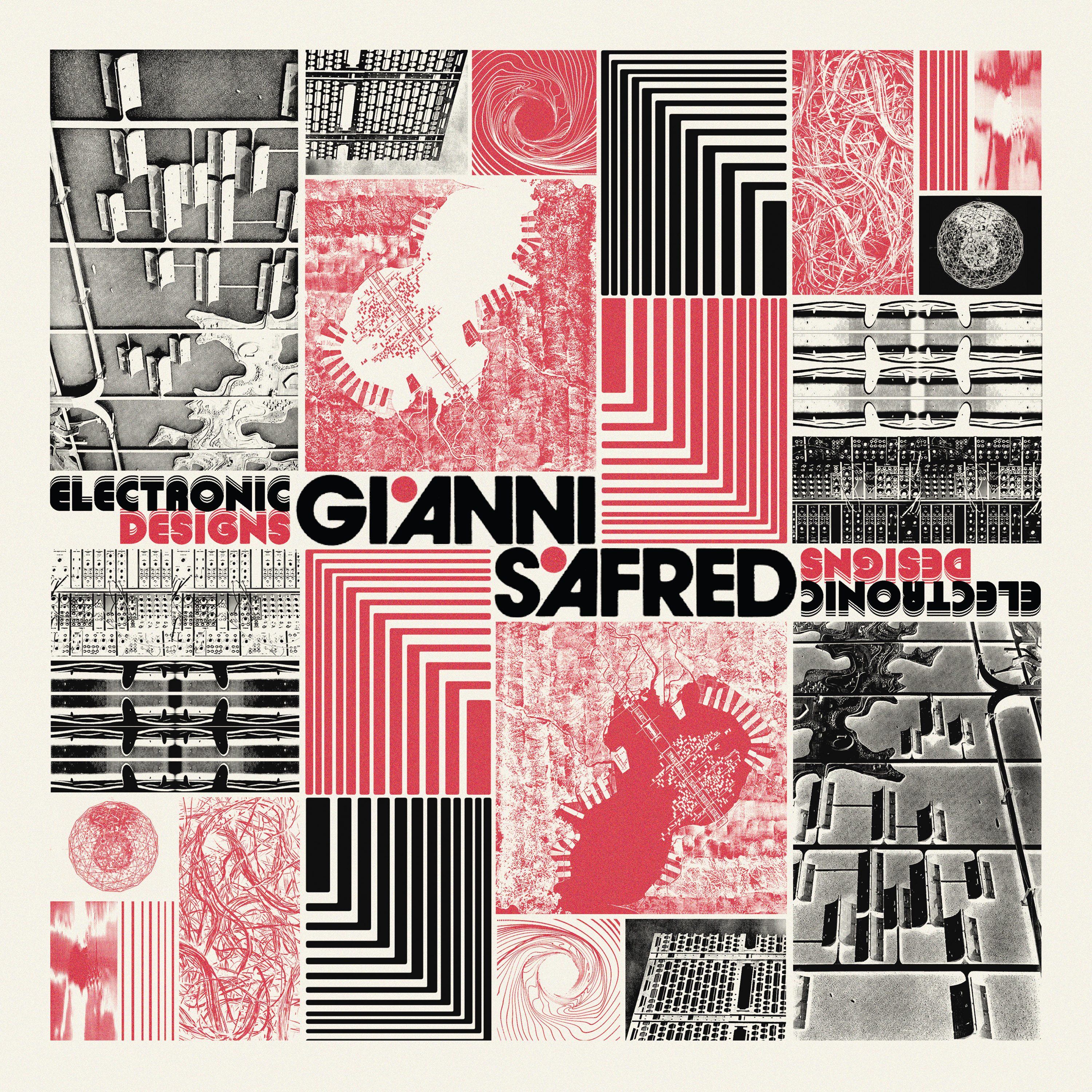 Electronic Designs was originally released in 1977 and it retains a weird and wonderful retro-futuristic atmosphere. By turns bizarre and swinging, wild and smooth, these recordings have a depth and an edge not always achieved in so-called library music. Younger glitch merchants can only hope to get close to the swing that Italian master Gianni Safred effortlessly knocks off on "Elastic Points." Then again, he did play with Django Reinhardt. This is a killer release with calculated, almost architectural, quality oozing out of every track. The cosmic melancholy of "Spheres'' is not unlike some of Basil Kirchin's more poignant compositions, such as "I Start Counting" while the frankly stunning "Planetarium" has Safred gradually unleashing an array of textural flourishes, as if imitating meteors or shooting stars amid a galaxy of stars and planets.
Electronic Designs was originally released in 1977 and it retains a weird and wonderful retro-futuristic atmosphere. By turns bizarre and swinging, wild and smooth, these recordings have a depth and an edge not always achieved in so-called library music. Younger glitch merchants can only hope to get close to the swing that Italian master Gianni Safred effortlessly knocks off on "Elastic Points." Then again, he did play with Django Reinhardt. This is a killer release with calculated, almost architectural, quality oozing out of every track. The cosmic melancholy of "Spheres'' is not unlike some of Basil Kirchin's more poignant compositions, such as "I Start Counting" while the frankly stunning "Planetarium" has Safred gradually unleashing an array of textural flourishes, as if imitating meteors or shooting stars amid a galaxy of stars and planets.
I was attracted to this album because of Larry Manteca's "Ufo Bossa/Intergalactic Porno Scene" (released in March on the Four Flies label) from the previous recording Mutant Virgins From Pluto. That breezy ultra-lounge electro-cocktail 7" sent me scurrying through the Four Flies catalog and landed me here. The cover art of Electronic Designs - with interlocked squares, parallel lines, images from maps or pseudo-astronomy, and oblongs which resemble circuit boards - gives away some of the compositional structure and feel which Safred coaxes from his Polymoog and ARP Odyssey. It's all about functional experimentation, relaxed and catchy, hypnotic space-age swathes of melody floating over well-grounded grooves.
Not that Electronic Designs is a dry intellectual affair in the slightest (remember the swing background) but Safred really knows where he is going with this music. As well as a clear sense of navigation, the album has a geometric logic. It fits together as well as if it had been composed by someone with logarithmic superpowers. Or perhaps as if Safred were a reincarnation of John Napier: the Scottish mathematician who developed a forerunner of the slide rule (a set of rods called Napier's Bones) and in 1614 published his discovery of logarithms. Truth be told I could have been reading about such concepts since 1614 and be absolutely none the wiser, yet just listening to the snakelike top melody and easy beats which Gianni Safred puts into "Poe's Clock", or the slow spiraling descent and echoing electro-swirl of "Sacred Interlude" somehow makes me feel much smarter, not to mention a good deal looser in the region of my hip bones.
Read More

